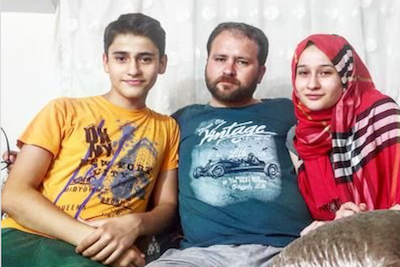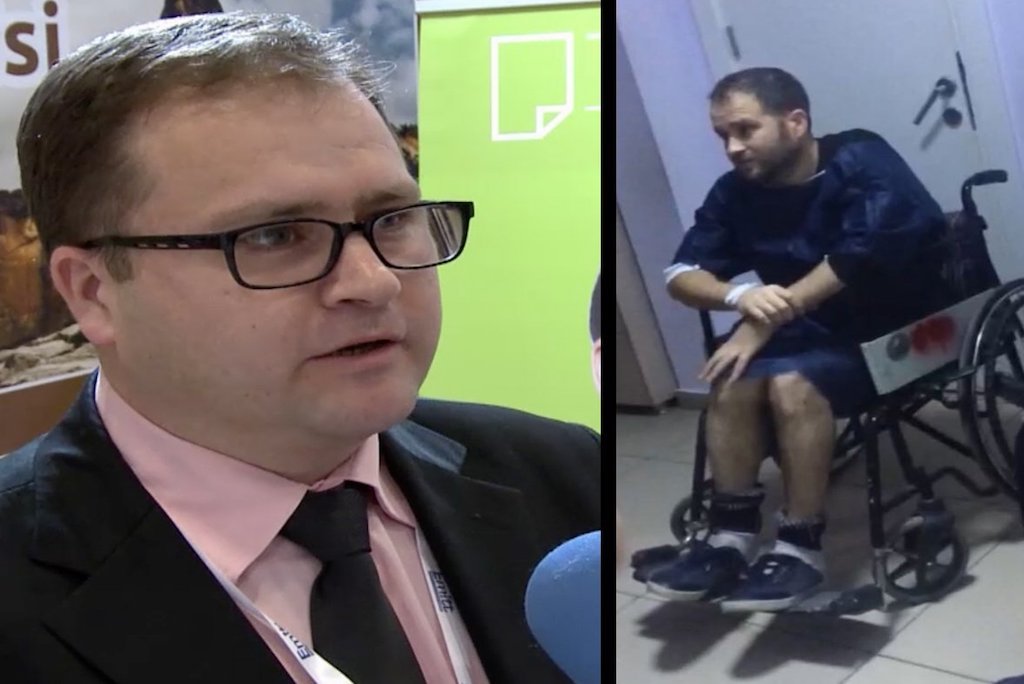Forty-two-year-old Deniz Hakan Şen, who was detained by Turkish police and later jailed by a court in October 2017 over alleged links to the Gülen movement despite medical reports showing that he was suffering from an advanced state of cancer, died on Monday.

According to a Twitter message posted by prominent Turkish human rights defender Ömer Faruk Gergerlioğlu, Şen requested urgent medical treatment in 45 petitions. However, his petitions were ignored for 60 days by the relevant authorities while he lost more than 35 kilograms and his weight dropped from 85 to 50 kilograms during his time in prison.
It was reported that he was finally allowed to visit a doctor some 60 days after his first petition to prison authorities to seek medical treatment. The authorities also showed no sensitivity to his family’s repeated calls for his release. According to his friends, it was too late when he was eventually released on February 19, 2018.
The Stockholm Center for Freedom (SCF) reported in one of its studies titled “Suspicious Deaths and Suicides In Turkey” that there has been an increase in the number of suspicious deaths in Turkey, most in jails and detention centers, where torture and ill-treatment are being practiced. In the majority of cases, authorities concluded them to have been suicides without any effective, independent investigation.
Suspicious deaths have also taken place beyond prison walls amid psychological pressure and threats of imminent imprisonment and torture, sometimes following the release of suspects or just before their detention. SCF has compiled 107 cases of suspicious deaths and suicides in Turkey in a list in a searchable database format.
Turkey survived a controversial military coup attempt on July 15, 2016 that killed 249 people. Immediately after the putsch, the Justice and Development Party (AKP) government along with autocratic President Recep Tayyip Erdoğan pinned the blame on the Gülen movement.
Fethullah Gülen, who inspired the movement, strongly denied having any role in the failed coup and called for an international investigation into it, but President Erdoğan — calling the coup attempt “a gift from God” — and the government initiated a widespread purge aimed at cleansing sympathizers of the movement from within state institutions, dehumanizing its popular figures and putting them in custody.
Turkey has suspended or dismissed more than 150,000 judges, teachers, police and other civil servants since July 2016. Turkey’s interior minister announced on December 12, 2017 that 55,665 people have been arrested. On December 13 the Justice Ministry announced that 169,013 people have been the subject of legal proceedings on coup charges since the failed coup.
A total of 48,305 people were arrested by courts across Turkey in 2017 over their alleged links to the Gülen movement, said Interior Minister Süleyman Soylu on Dec. 2, 2017. “The number of detentions is nearly three times higher,” Soylu told a security meeting in İstanbul and claimed that “even these figures are not enough to reveal the severity of the issue.”
Derdimize yanmayalım. Vicdan sahibi İnsanlar; Cenaze Güneşli Evren Mahallesi Hicret Camiinden Öğlen Namazına müteakip kalkacak, İstanbul Kocasinan Mezarlığına defnedilecektir.
Bu acıların tarifi yok!Allah başta merhuma olmak üzere hepimize merhamet etsin.https://t.co/v4ll9hvY19— Deniz Zengin (@kamphatiralarim) March 7, 2018















